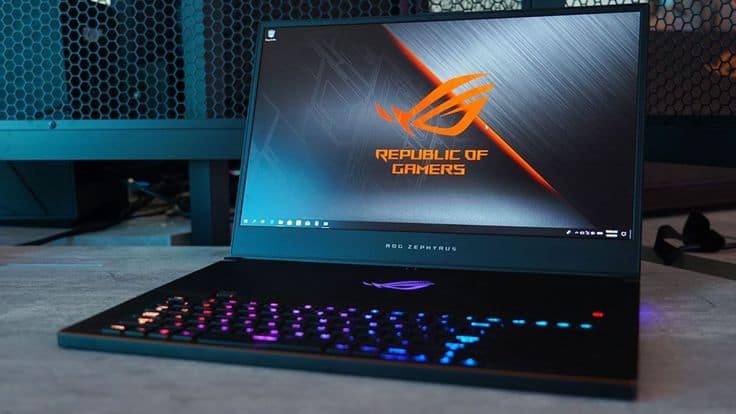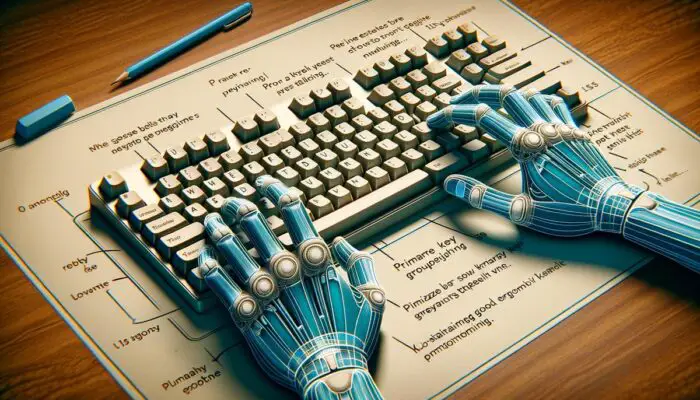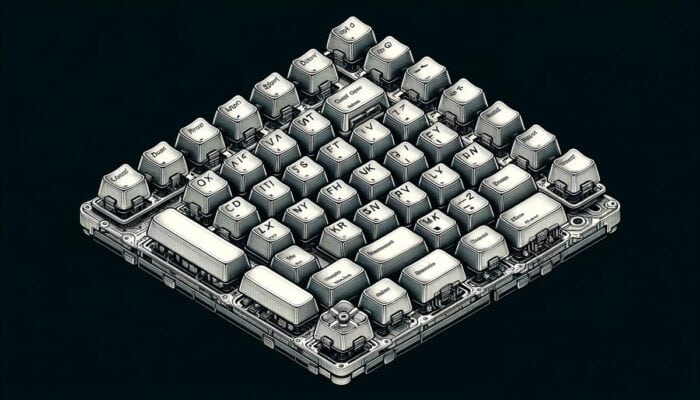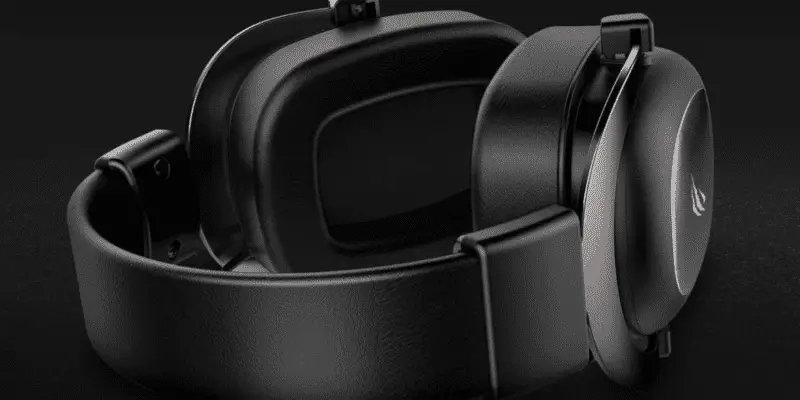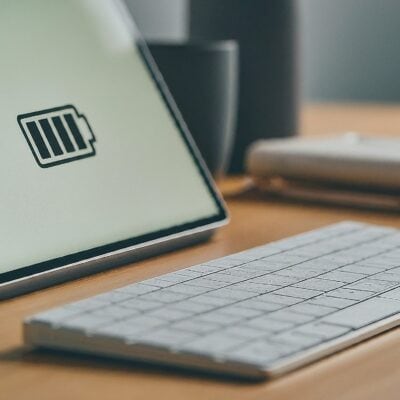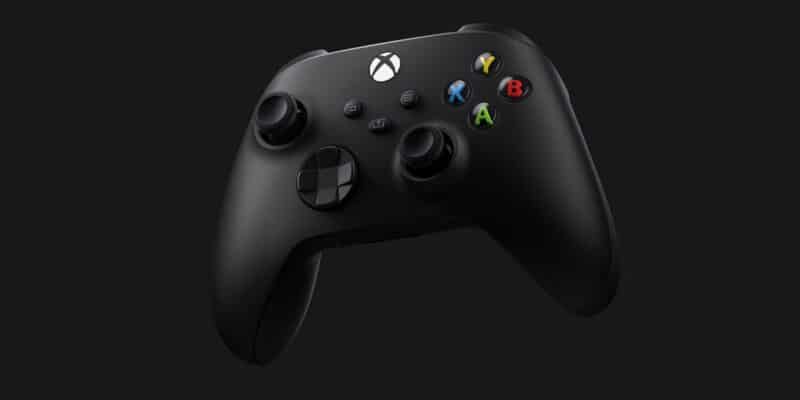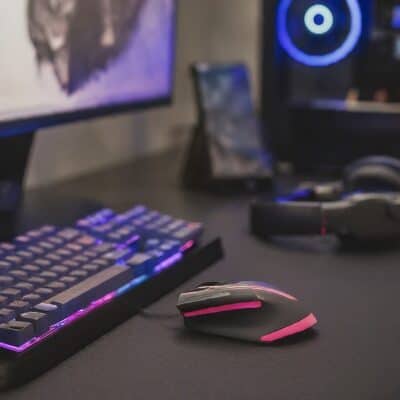Gaming Laptops, Blog
Why Is My Laptop Underperforming? 4 Superb Reasons Why It Happens
Why is my laptop underperforming?
Has your laptop been running slower lately, making it feel like an outdated relic rather than the trusted machine it used to be?
If so, you’re not alone – before rushing out to buy a new laptop, understand this: over time, minor issues can bog down even the best laptops.
From unnecessary startup programs to piled-up temporary files, subtle problems left unchecked can gradually create noticeable slowdowns.
However, with some quick tweaks and customization, your laptop’s performance may improve remarkably without expensive upgrades.
Keep reading to discover easy fixes that may breathe new life into your laptop’s speed. You’ll be surprised by the results!
In this blog, we also have an article about q-tech NVIDIA mx130 gaming laptop review that you might want to read about it.
Why Is My Laptop Underperforming
Lately, I’ve been noticing that my laptop just isn’t as snappy as it used to be. Opening programs takes longer, even simple tasks like loading web pages crawl along. So I did some investigating into what could be causing these sluggish performance issues. Here’s what I found:
My Machine Is Getting Up There in Years
This laptop has served me well for close to a decade now. But just like folks, machines have a lifespan too. Especially with intense gaming laptop use, wearing out components like the processor, graphics card, and hard drive could be slowing things down over time. I even started seeing more error messages pop up of late.
No Defenses Against Modern Malware
Another thing I realized is that I hadn’t updated my antivirus protection in over a year. That was leaving my laptop exposed to all kinds of modern threats online. It’s no wonder intruders might have slipped in and bogged things down, affecting overall performance over time.
An Outdated Operating System
Plus, I never made the switch from Windows 7 to the newer Windows 10. But the latest operating systems include important security updates that can help keep programs running smoothly at a good frame rate. Sticking with older software on my underperforming laptop may have added to slowdowns.
Juggling Too Many Open Programs
I love having lots of tabs and programs open at once. However, askin’ one machine, especially a gaming laptop, to focus on a dozen different hardware-intensive tasks at a go is a tall order.
All those running programs were likely fighting over my laptop’s memory, CPU usage, and NVIDIA GeForce graphics card resources.
In closing, I think addressing these four main factors could help explain why my laptop’s performance has declined. Now I can take steps to remedy things and get my machine zipping along once more for smoother gaming.
We have an article about gaming laptop problems on our blog. Go to: Do All Gaming Laptops Get Hot? 3 Superb Facts That You Should Know About It
Improve Laptop’s Battery Life
Have you noticed your laptop isn’t lasting as long on a single charge as it used to? Don’t fret, friend, with some simple adjustments you can squeeze more performance and battery life out of your machine.
As a computer technician, I’m always troubleshooting gadgets for customers. Over the years, I’ve picked up valuable tips for optimizing a laptop’s fuel supply and improving overall system performance. Let me share a few secrets I’ve learned.
Turning Off Power-Draining Features
Unneeded bells and whistles sap power. I always check that wifi, bluetooth, brightness, and screen savers are adjusting automatically. Any apps working on the background consume the device’s limited resources. (1) Therefore, closing unused programs an also boost CPU and GPU performance.
Cleaning Out Cloggers
Dust bunnies slow cooling fans so vents can’t cool overheating chips. Every few months, I use compressed air to clear out caked-on crud. Cool chips sip electricity, giving batteries an extra two hours between charges! It also prevents viruses and malware from overheating your system.
Checking for Software Saps
Outdated programs, drivers, and graphics cards drain more juice. I scan for updates to the operating system, NVIDIA drivers, and security suites.
Windows 10 has a performance power slider that enables end customers to quickly and intelligently trade performance of their system for longer battery life. (2)
Avoiding Entertainment Marathons
While I love game and movie marathons as much as the next guy, continuous streaming and gaming is no way to treat stressed batteries or your hard drive. Take breaks and your laptop will thank you with an extra 3 hours between charges and better cooling.
With some simple habits like these regular tune-ups, I’ve helped extend laptop lifespans and double customers’ daily battery lives. Put them to use and your machine will run longer between plug-ins too with improved performance.
Considerations Before Buying a New Laptop
Considering a New Laptop? Do Your Research!
If fixes don’t solve your lagging laptop, upgrading may help. But shop smart! I’ve seen folks waste cash on duds.
Frame rate and cpu and gpu power affects gameplay. Hard drive space also impacts downloading big gaming laptops titles. Check reviews or test models yourself. A weak link drags down fun.
Pay attention to extras too. Programs like GeForce Experience auto-update graphics drivers for smooth graphics. This eases frustrating Windows update bugs people contact me about.
Reliable brands serve customers best. Dell, Lenovo, and HP offer in-person service and online tutorials through device manager if issues arise. Some folks ignore the latest driver that boosts speeds!
Consider portability versus power. Thin laptops compromise cooling for size, leading to thermal paste drying and power supply strain over time. Bulkier models offer expansion and last seasons longer.
Study return policies too. Problems might annoy within weeks of purchasing non-refundable machines. Compare prices from various share on other sites and read small print fine.
With research, your next laptop could serve gaming laptops for years as new releases tax it less. An informed buy saves wallet pains later!
Long-Lasting Laptops Research Real-Life Performance
Frame rate and cpu and gpu power draws gaming laptops buyers, but construction quality matters more with frequent moving parts use.Subjecting candidates to real assignments tests builds I’ve repaired.
Last summer, I reviewed four devices for a friend. Her work involved rendering and years of notetaking. Each ran temperature tests over 72 hours under load.
One smoked, two slowed to a crawl. The lasting model’s superior thermal paste application and well-ventilated power supply kept chips cool and functioning flawlessly.
Shops share claims. Hands-on studying shows how hardware handles heavy demanding gaming laptops hard drive strains.
Support forums also educate on common issues brands face. Avoiding problems means analyzing uptime statistics across various applications, not specs alone.
Reliability remains key for machines used daily. Consider expected use cases carefully before buying less sturdily engineered options promoting cpu and gpu power on paper alone. Long-term use supports lifelong hardy builds.
Conclusion
If your laptop hasn’t been running as smoothly as it once did, now you’ve got some easy tips to troubleshoot common issues and boost performance.
Over my years fixing gadgets, I’ve helped dozens of clients resolve slowdowns with some simple adjustments. More often than not, a lagging machine just needed some optimizing and love like we discussed.
Don’t feel discouraged if your first try at tuning up your laptop doesn’t do the trick. These things take trial and error sometimes.
But now you’ve got a good foundation of what to check for. With steady practice of these methods, I’m confident you can breathe new life into an underperforming laptop.
Who knows, you might find your machine running even better than when it was brand new!
The best part is, future maintenance will be a cinch with these techniques in your back pocket.
By keeping your system’s layers dusted, fuel stocked, and software trimmed, you’ll avoid needing expensive replacements.
Instead, you’ll save coin and keep the trusty friend by your side working its best for moons to come. So what are you waiting for – start optimizing that laptop today, and watch its speed soar!
Frequently Asked Questions
How do you fix underperforming laptop games?
It is possible that your laptop game is not performing as well as it should be because of a few reasons.
One reason could be that the graphics card on the laptop may not be powerful enough to run the game smoothly.
You can try upgrading your graphics card if this is the case.
Another possibility could be that there are too many software processes running in the background, causing slowdowns and reduced performance within games.
If you want to play a demanding game on your laptop, try disabling some of these processes or finding an alternative way to run them without impacting gameplay.
How do I optimize my laptop for performance?
There are a few things that you can do to improve your laptop’s overall performance.
One thing to consider is upgrading your processor.
This will help boost how quickly the computer can access data and run programs.
Another option is increasing the amount of RAM (memory) your laptop has.
Having enough memory allows various applications to run at the same time without crashing or slowing down, which can result in faster processing speeds and improved productivity within tasks like writing papers or working on projects.
Finally, make sure that all hardware components such as graphics cards, hard drives, and RAM are up to date.
This will ensure that your laptop is able to handle the most popular games and applications present on the market today.
Why does it feel like my GPU is underperforming?
There could be a few reasons why your laptop’s GPU might feel underperforming, including outdated drivers or hardware, low battery life, or a clogged fan.
Improper cooling may also be to blame.
In order to troubleshoot and determine the cause of any performance issues with your computer, you’ll need to access various diagnostic tools (like Windows’ Performance Monitor) and perform some basic tests (like wiping down the system drive).
Can I disable certain processes to improve my laptop’s performance?
Yes, there are a few things that you can do to tweak your computer’s settings in order to improve its overall performance.
Some of the most common processes that you may want to disable include anti-virus software, firewalls, background updates, and programs, NVIDIA GeForce Experience or AMD Catalyst Control Center services.
By disabling these applications, you’ll reduce the load on your system and allow it to focus on running specific tasks (like gaming) without being bogged down by unnecessary distractions.
Is it time to replace my laptop battery?
It is possible that your laptop battery may be underperforming.
A low battery can cause decreased performance and even prevent your laptop from turning on.
If you’re not sure if your battery is the issue, try running a quick test to see if it’s able to power up without being plugged in.
If the problem persists, it might be time to replace your laptop battery.
What should I do if my computer only starts up sporadically or freezes frequently?
One potential cause of your laptop’s intermittent or frequent freezing could be due to a lack of necessary components.
If you are unsure if your computer requires specific hardware in order to run properly, try visiting the device manager and verifying that all listed devices are operational.
Additionally, make sure that you have updated all of your Windows operating system updates as this can often fix common issues related to software compatibility.
Finally, it is possible that an infection may be affecting your computer; in this case, please consult a qualified technician for assistance in eradicating any associated problems.
Is it time for driver updates?
Outdated drivers are one reason laptops can start to underperform over time. Check for any available driver updates, especially for your graphics card, using the device manager or checking the manufacturer’s website for the latest driver. Ensuring all devices have the most up-to-date drivers can help optimize performance.
Could my graphics card need new thermal paste?
Over the years, thermal paste between your graphics card’s chip and heatsink can dry out, reducing its effectiveness at transferring heat away. This can cause overheating and throttling. Consider reapplying new thermal paste if your graphics card is several years old.
Is my power supply struggling?
A failing or underpowered power supply can negatively impact performance of components like your CPU and graphics card. Observe CPU usage and GPU temperatures for signs it may be limiting components. Testing with a known good power supply can help determine if an upgrade is needed.
What programs are running in the background?
Background processes and programs you rarely use but have set to start automatically can gradually slow a laptop down over time. Check your activity streams, task manager and installed programs to identify and disable anything not essential to have running.
When was the last time I cleaned fan vents?
Dust buildup inhibits airflow leading to poorer cooling. Regularly cleaning out fan vents with compressed air can help lower temperatures and prevent throttling. Consider cleaning vents if it’s been several months or longer since the last cleaning.
Is virtual memory set appropriately?
Windows automatically manages virtual memory (pagefile size) but it’s worth checking if it’s correctly configured. An overly large pagefile can negatively affect performance; a too small pagefile could cause crashes. Adjust if needed using diagnostic tools.
Are there unnecessary temporary files?
Over time, temporary files can accumulate and waste valuable storage space. Use disk cleanup and third party cleanup tools to identify and remove unnecessary temporary files clogging up your drive. More free space can potentially boost performance.
Could dual channel RAM help?
On many modern laptops using dual channel RAM provides better performance than single channel. Check if your laptop supports dual channel mode and upgrade to a matched pair of RAM sticks if currently using single channel. More RAM itself can also help some tasks.
Is antivirus scanning too aggressively?
Constant and overly aggressive scanning can drain system resources like the CPU. See if your antivirus has performance settings and adjust to scan less frequently or only when idle to lessen resource usage impact. Consider newer, less intrusive options too.
Are video games causing overheating?
Graphics-intensive games can push a laptop to its thermal limits. Monitor temperatures and frame rates using diagnostics software while gaming. Consider reducing resolution, graphics quality and quitting other demanding programs to allow better cooling and prevent throttling during extended gaming sessions.
So in summary – keeping drivers, software, vents and the system optimized can often resolve performance issues. But hardware limitations may eventually require an upgrade after years of use to experience the best performance from newer demanding applications and games.
References
- https://developer.android.com/about/versions/oreo/background
- https://learn.microsoft.com/en-us/windows-hardware/customize/desktop/customize-power-slider
Related Articles For You!
- You may like: Do All Gaming Laptops Get Hot? 3 Superb Facts That You Should Know About It
- You may enjoy this article about: Do Cooling Pads Help Gaming Laptops? 3 Superb Facts About This Laptop Accessories
Our Latest Posts:

